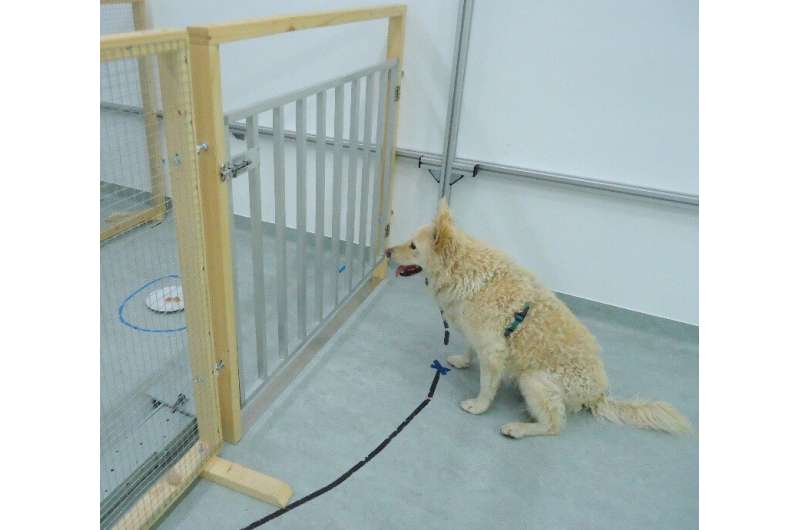Diet and prior training show no impact on cognitive decline in aging pet dogs

A new study of older pet dogs found that problem solving, sociability, boldness and dependency decline with age, and reported no associations between an enriched diet, lifelong training experiences, and measures of behavior and cognition after a one-year diet period. A team of researchers at the University of Veterinary Medicine, Vienna, Austria, and University of Liverpool, UK present these findings in the open-access journal PLOS ONE on September 16, 2020.
Like humans, dogs can experience cognitive decline and behavioral changes as they age. For instance, they may display less curiosity about novel objects and show decline in social responsiveness, memory and attention. Also like humans, individual dogs vary in their rates of cognitive decline. Some research suggests that lifelong training and an enriched diet could slow cognitive aging in dogs. However, few studies have explored aging in pet dogs, as opposed to dogs in laboratory settings.
To better understand aging in pet dogs, the authors assigned 119 pet dogs—aged over 6 years and of varying breeds—to receive either an enriched diet (including nutrients such as antioxidants, omega-fatty acids, Phosphatidylserine and tryptophan) or a control diet over the course of one year. They also asked the dog owners to report their pets' previous training experiences.After one year of dietary treatment, the researchers evaluated the dogs' cognition and behaviors in a newly developed battery of tests known as the Modified Vienna Canine Cognitive Battery (MVCCB).
The analyses showed that, in general, the aging dogs experienced declines in four out of six total factors addressed by the MVCCB: problem solving, sociability, boldness, and dependency. The two other factors, trainability and activity-independence, showed no change with age. Previous training experiences and an enriched diet showed no significant association with the observed cognitive declines.
These findings suggest that additional research is needed to determine whether and how training and diet might impact aging in pet dogs. The authors highlight that the MVCCB could be a useful tool to detect age related changes in dogs for future research.
Author Durga Chapagain adds: "Modified Vienna Canine Cognitive Battery can be used as a tool to determine behavioral changes and cognitive deficits in aged dogs."
More information: Chapagain D, Wallis LJ, Range F, Affenzeller N, Serra J, Virányi Z (2020) Behavioural and cognitive changes in aged pet dogs: No effects of an enriched diet and lifelong training. PLoS ONE 15(9): e0238517. doi.org/10.1371/journal.pone.0238517
Journal information: PLoS ONE
Provided by Public Library of Science





















